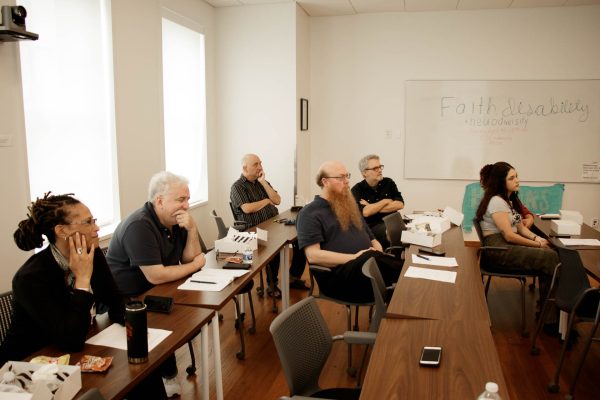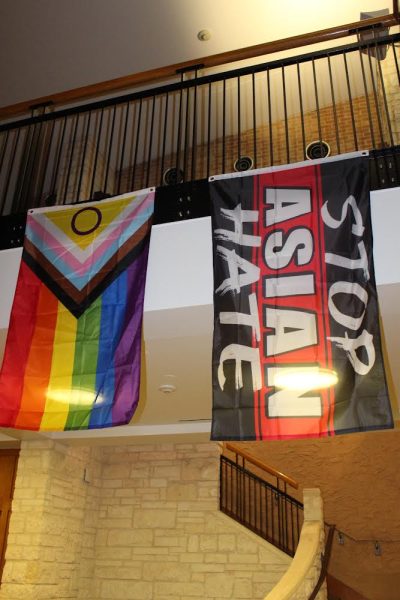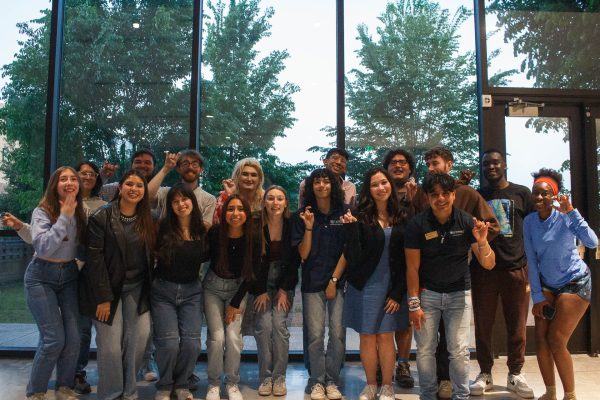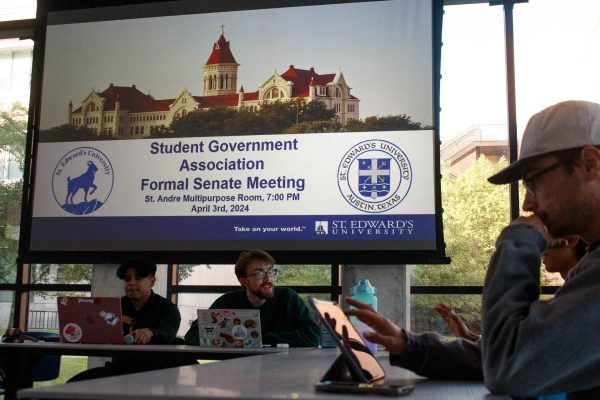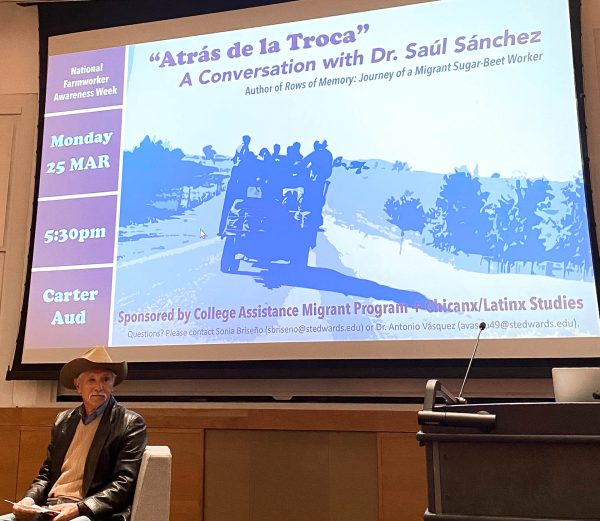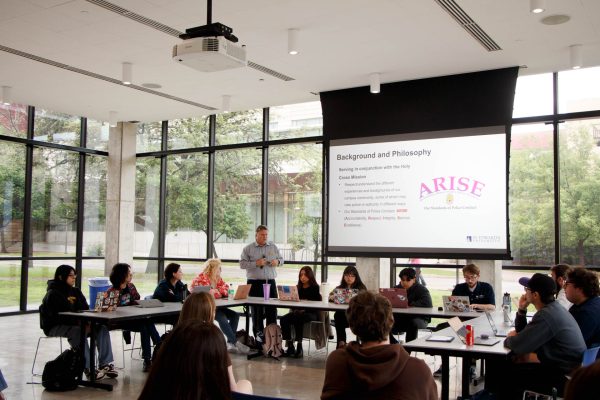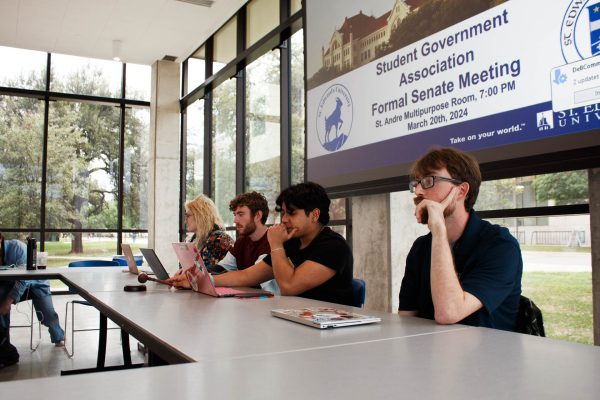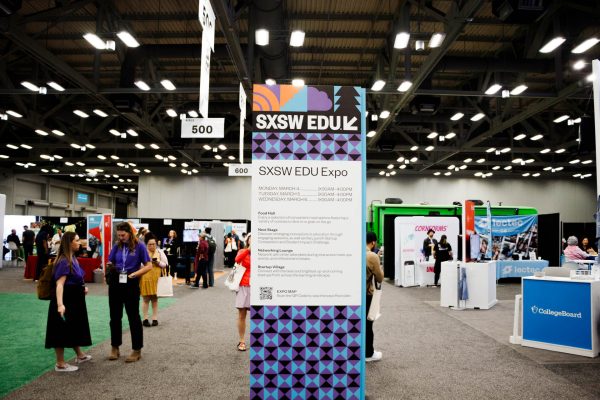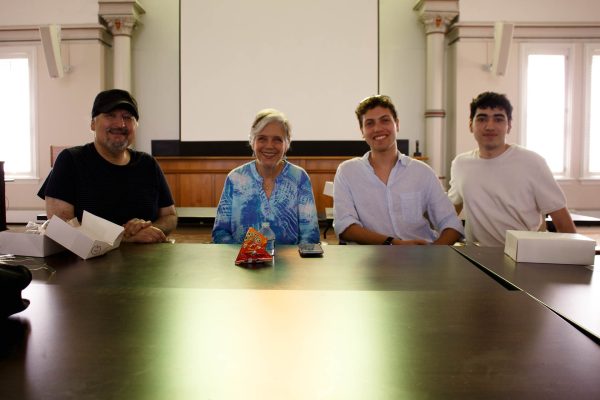Christian-Buddhist Dialogue brings together different ideas
Interfaith dialogue explores Christianity and Buddhism
Geshe Thupten Phelgye, a Tibetan Buddhist monk of 41 years, came to St. Edward’s University to speak at “The Cross and the Lotus: Christian-Buddhist Dialogue,” an event hosted by Campus Ministry and the Health & Counseling Center.
Phelgye was born in 1956. After graduating high school, he attended Sera Jey Monastic University in south India and became a Tibetan Buddhist monk. After 18 years of studying and living, he earned his Geshe degree, the largest lineage of Tibetan Buddhism.
In 2001, Geshe was elected to the Tibetan Parliament in Exile (TPiE). During his 10 years in the TPiE, Phelgye worked with the Sulha Peace Project, which seeks to reunite Jews, Muslims and Christians in the Middle East. Apart from religious work, the monk has traveled the world to promote peace and social justice. He has spoken to over 100 colleges and universities across North America and Asia.
During the event, Phlegye and the director of Campus Ministry Fr. Peter Walsh spoke about their different religious experiences.
Walsh was born in Boston. After graduating from Stonehill College in Massachusetts, he entered the congregation of Holy Cross and attended seminary at the University of Notre Dame. He also earned a Master of Arts in English, specializing in Irish poetry, from Boston College. Over the years, Walsh has developed numerous social and spiritual programs focused on young adult ministry. Before coming to St. Edward’s, Walsh worked with student athletes at Yale University in a program called The Cathletes. Walsh also worked with the Yale Muslim Students Association.
Both Phelgye and Walsh spoke about spiritual and cultural diversity, mixed with a little humor, in front of a diverse crowd of students and faculty.
When asked about the essence of their religious traditions, Phelgye expressed the importance of compassion, wisdom and learning.
“The purpose of learning is to benefit,” Phelgye said. “It is unconditional to all.”
Similarly, Walsh expressed the importance of grace and God’s unconditional love for all creation.
“Teaching about God’s unconditional love inspired me to be who I am today,” Walsh said.
They also shared their views on the subjects of symbolism. Walsh spoke on the evolution of the Christian symbol, the cross.
“The cross went from symbolizing violence and suffering to symbolizing faith.” Walsh said.
Phelgye explained the importance of the rose as a symbol of Buddhist faith.
“A rose comes from the dirt, but grows to be pure and natural,” Phelgye said.
When asked about the meaning of suffering and happiness, the two religious leaders had opposing views.
“Happiness is looking at God and God looking at us,” Walsh said. “Sin is suffering. Suffering happens to us regularly, deepening passion towards others.”
On the other hand, Phelgye viewed happiness as suffering because it comes from liberation. He believes the liberation of the cycle of death and birth is happiness. To Phelgye, knowing, learning and obtaining wisdom will not lead you toward the wrong path on purpose. However, he believes anger, hatred and ignorance will lead down a negative path of repercussions.
“By not knowing what is right or wrong causes consequences” Phelgye said. “Wisdom is light, and ignorance is darkness.”
This was the case for Phelgye growing up in Kham, a Tibetan province in China, where he experienced the Chinese army invade his village. His family tried to flee to India but was captured by the Chinese army and put in a concentration camp for two years. He ran away from home at the age of 13 and was going to join the army, but eventually his mother fooled the Chinese authority and snuck out with her children.
“To grow up in so much hatred and anger was the most suffering to me personally,” Phelgye said. “It was probably the most difficult time in my living.”
When asked about their robes, Phelgye and Walsh agreed on the symbolism of darker colors as humility, which can result in humbleness.
“Darker is warmer,” Phelgye said. “I wore this (robe) my whole life and I never changed it either.”
At the conclusion of the dialogue, both Phelgye and Walsh were asked to perform traditional religious chants.
After the chants, both were open to questions.
When asked what makes each truly happy, Phelgye answered that his usefulness is what truly makes him happy.
As for Walsh, he answered that being at the dinner table is when he experiences true happiness.
“I love being at the table too, I mean look at me,” Phelgye said as he rubbed his stomach, inciting laughter from the audience.
Tai Nguyen, a St. Edward’s student, was one of the audience members who loved Phlegye’s humorous personality.
“I thought the monk was extremely funny,” Nguyen said. “I never would’ve thought he had this much sense of humor by looking at him”
Another student in the crowd, junior Thuy Vy Mai, enjoyed the event but didn’t feel that it furthered her knowledge of Buddhism.
“I was personally a little disappointed in the event,” Mai said. “Because of my prior knowledge of Buddhism, I don’t feel I learned about the practice. I thought this event didn’t benefit me as much as I hoped.”
However, Mai did feel the dialogue was successful in giving the audience a basic understanding of the religion and showing the differences and similarities between Christianity and Buddhism.
Follow James on Twitter for more!


